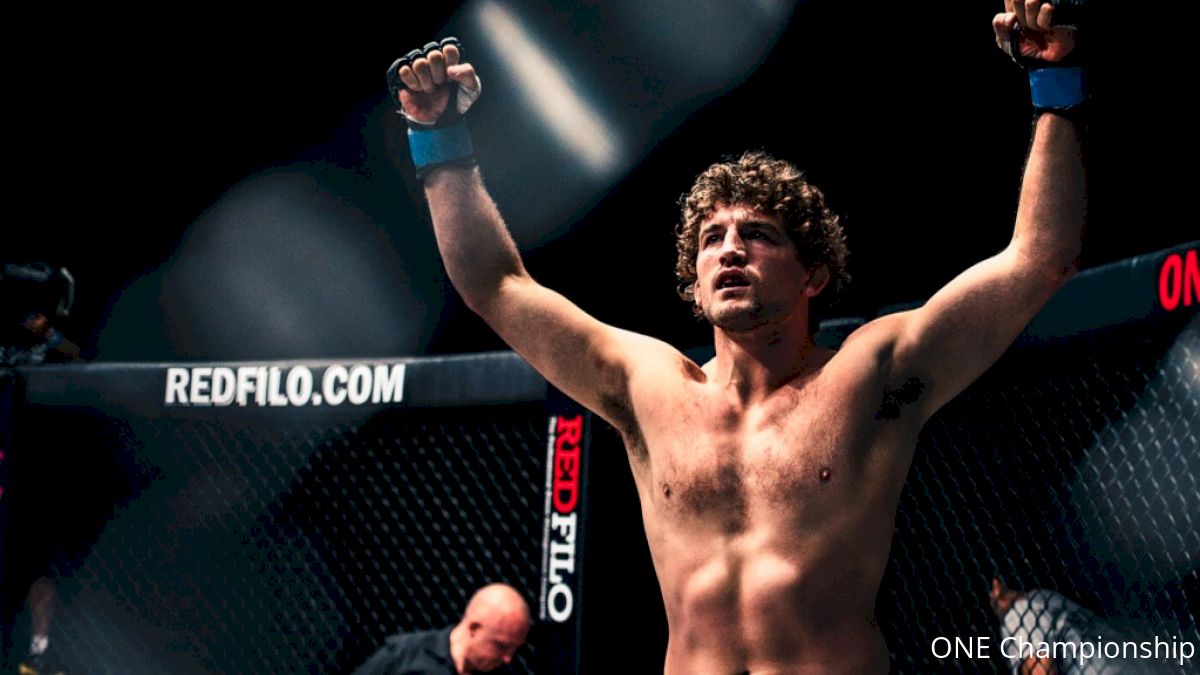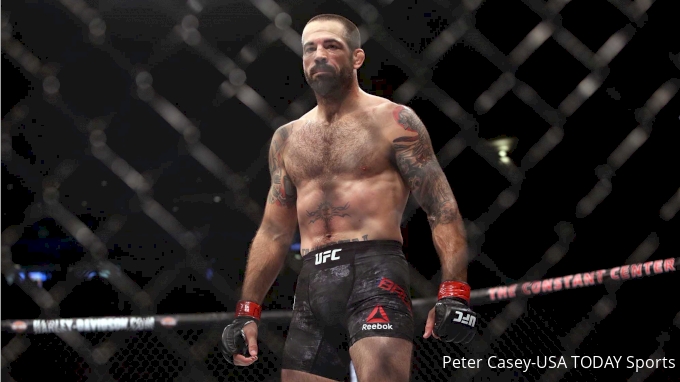Mindset Monday: Top 10 Mental Mistakes Fighters Make
Mindset Monday: Top 10 Mental Mistakes Fighters Make
Understanding common pitfalls in a fighter's mindset can make all the difference inside the cage. Mindset Coach Mike Moor breaks it down.

By Martial Arts Mindset for FloCombat
At times during your training camp, you may find yourself feeling that the physical training or the weight cut is overwhelming. You might even contemplate if it’s all worth it.
However, any experienced fighter knows the hardest part of every fight camp is managing the mental gymnastics your mind will play and learning how to navigate that obstacle course.
Instead of having to learn the hard way—or hoping that one day you can outwork these issues—Martial Arts Mindset will discuss some of the common mental mistakes fighters make and provide some simple solutions on how to deal with them.
1. Getting involved in the hype
This includes reading/following the articles, commentary, or press about your event on social media, from friends, or in any venue. You can only be a competitor or a fan. There is no in-between. Leave the hype for the fans to enjoy while you focus on yourself. Jose Aldo fell victim to this against Conor McGregor leading into UFC 194.
ACTIONABLE ADVICE:
Make a plan for how you will deal with the hype and avoid the “fan mentality.”
2. Associating with negative people
These people will only slow you down. Keep your distance from them, especially during your training camp through fight day. You’re a reflection of the three people you spend the most time with.
What does that person look like for you?
ACTIONABLE ADVICE:
Evaluate those in your circle and only pick those who bring you closer to your goals
3. Making any particular fight or event 'special'
Every fight and training session is important, but none of them are ever special. “Special” adds pressure (read about how to humanize pressure here). Many fighters get caught up in their “professional debut,” thinking that they have to fight differently than they did as an amateur. Do what got you there, or, as Ben Askren says, dance with the girl that brought you.
ACTIONABLE ADVICE:
Treat everything the same by making a plan of how to treat daily training like more fights and vice versa. FYI: fight simulations is not the solution!
4. Believing any opponent you face is unbeatable
David vs. Goliath, Matt Serra vs. Georges St-Pierre, Rose Namajunas vs. Joanna Jedrzejczyk. MMA has proven time and again no one is Superman or Wonder Woman. Records, rankings, and predictions have no impact on a fight when the cage closes—unless you let them.
Serra clearly didn’t believe GSP was unbeatable at UFC 69—same with Chris Weidman vs. Anderson Silva at UFC 162 and Rose vs. Joanna at UFC 217, but the fans definitely did. The underdogs, however, didn't give their opponents too much respect, and that made all the difference.
ACTIONABLE ADVICE:
Remind yourself of times you’ve defeated (or others have) opponents that may have been perceived to be better better
5. Focusing on the past or future instead of the present moment
Only focus on the present and how you can do your best at this moment. Outside of past successes, thinking about the past will not help you compete better in the present moment.
ACTIONABLE ADVICE:
Any time you find yourself straying from the present moment, reset yourself and change your focus back to the present. In a previous edition of Mindset Monday, we covered this topic at length if you'd like to learn more.

Photo Credit: Peter Casey-USA TODAY Sports
6. Using the word 'can't'
Don’t ever say "can't." Any negative self-talk is destructive for someone trying to have a winning mindset. Thoughts become words. Words become feelings. Feelings become actions. Actions become outcomes and habits. Control your thoughts and words.
Rose Namajunas repeated the words "confidence" and "composure" anytime she felt nervous or doubted herself during training in the lead up to her fight vs. Jedrzejczyk at UFC 217, providing a perfect example of the application of this principle.
ACTIONABLE ADVICE:
This is simultaneously an easy and a difficult fix if it has become a habit for you. Just. Don't. Do. It. Remove the word from your vocabulary, and replace it with more positive, forward-looking words that can propel your performance ahead.
7. Dwelling on a setback or loss
Learn the lesson, then move on, period. Just let it go and do it better next time or make the best of the situation. The same principle holds if you're dealing with an injury. St-Pierre dominated Serra in their rematch at UFC 83, proving he could come back from a devastating upset, forget about that loss, and move forward.
ACTIONABLE ADVICE:
Anytime you think about a setback or loss, think of three reasons why you’re thankful it happened.
8. Focusing exclusively on winning or titles
Compete with yourself. Focus on your strengths and your performance/process. Performance takes care of outcomes, so, focus on that instead of winning or titles.
ACTIONABLE ADVICE:
Focus on the performance factors in your control: your effort, attitude, and aggressiveness. Win each position and focus on winning as many 15-to-30-second sprints as you can.
9. Competing not to lose
A coward dies 1,000 deaths before he dies. Always play to dominate, not to win or "not lose." Fighting favors the aggressive, not the cautious. You can’t be attacking and defending at the same time, so choose to stay on the attack.
When Khabib Nurmagomedov fought Edson Barboza at UFC 205, not only did he stay aggressive and relentless in his attack, but he also went so far as to jog to the opposite side of the cage to hurt Barboza quicker.
ACTIONABLE ADVICE:
Remind yourself to keep improving your position and do harm to your opponent. Ideally, do both at the same time. Don’t get caught up in winning or losing. Just focus on improving and doing harm to your opponent.
10. Using extreme self-talk
This puts extra pressure on you. Using words like "must," "should," or "need to" heightens the moment and can cause you more stress and anxiety. Use “I want” and “I choose to” instead. Conor McGregor discusses positive self-talk all the time. He never even thinks of saying anything that doesn’t lead him closer to his goals.
ACTIONABLE ADVICE:
Recognize the top three negative phrases you use (can’t, won’t, maybe, try, never, etc.) and choose your words to replace them. Going forward, replace any negative self-talk with positive verbiage.
These were simple strategies to aid in the resolution of complex problems.
The most effective way to deal with these mental mistakes is to take a proactive approach and train your mindset on a regular basis by seeking out a Mindset coach to guide you.
Mindset training allows you to flex the most important muscle in a fight that will either be your Achilles heel or an edge against your competition. Similar to strength training, the more mental reps you do, the stronger your mental muscles will become.
For more information on the Martial Arts Mindset Training Program and the concepts presented, visit www.martialartsmindset.com.
Martial Arts Mindset is a training program that is specific to combat sports and is used by UFC and professional fighters, Brazilian jiu-jitsu competitors, Olympians, and high-level athletes throughout the world.